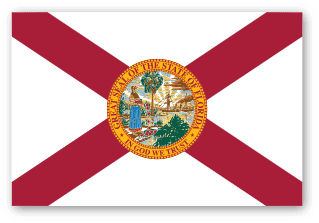Solar Tax Credits & Incentives
Federal, state and local governments offer tax incentives and grants to encourage homeowners and businesses switch to solar. Solar Energy World stays on top of the latest local solar incentives for you, so that you don’t have to worry about missing out. We also apply for all of these incentives on your behalf, so you get the benefit without the hassle.
The federal tax incentive helps make solar very affordable. State and local governments offer additional incentives for going solar. Some jurisdictions even offer property tax discounts when you go solar. We keep up with every incentive available in all areas we serve.

The Federal Solar Tax Credit is Now 30%!
The 30% federal solar tax credit, known as the Investment Tax Credit (ITC), allows U.S. homeowners and businesses to deduct 30% of the cost of installing solar energy systems from their federal taxes. This incentive reduces the financial burden of adopting renewable energy and applies to both residential and commercial installations. Covering expenses like solar panels, inverters, and labor, the ITC promotes environmental sustainability and energy independence. By making solar energy more affordable, it supports the growth of the solar industry and accelerates the transition to clean energy.
Solar Incentives
Solar panel incentives are designed to encourage purchasing solar panels by providing financial benefits to individuals that invest in solar energy systems. The most common types of solar panel incentives include federal tax credits, local incentives, net metering programs, renewable portfolio standards (RPS), and property tax exemptions. These are typically offered by governments, utility companies, and other organizations.
Benefits to Ownership
If you own your solar system, in addition to the tax incentives that make it less expensive to install, you also have the opportunity to earn money from the power you generate. Don’t worry, we set you up with an automated program that takes care of everything required to sell the excess power you generate.
SRECS
If you own your solar system, in addition to the tax incentives that make it less expensive to install, you also have the opportunity to earn money from the power you generate through Solar Renewable Energy Credits (SRECs). Don’t worry, we set you up with an automated program that takes care of everything required to sell the excess power you generate.
Once the installation of your solar electric system is complete, the system will be inspected and certified by a third-party. After the inspection, a state certification number is generated and is used to register an account to create and manage SRECs.
Solar Energy World partners with an organization that offers a service to manage your account – and they make all this completely hands-free. The entire process is automated so you can enjoy all the benefits with no effort.
Their mission is to provide the critical final component of the Renewable Energy Credit program by establishing a public marketplace connecting sellers directly to suppliers in an easy, transparent and equitable way. When you purchase your system from Solar Energy World, the solar credits you generate belong to you. Talk to our consultants to learn the current value of SRECs and how much a solar system that fits your property can earn.
Net Metering
Since today’s solar systems are all tied to the grid, if you generate more electricity than you use, the excess goes back to your utility company, spinning the meter backward and giving you a credit for the electricity your solar panel system generated. In simple terms, net metering allows residential and commercial customers who generate their own electricity from solar power to feed electricity they do not use back into the grid.
Net metering’s billing mechanism then credits solar energy system owners for the electricity they add to the grid. For example, if a residential customer has a PV system on the home’s rooftop, it may generate more electricity than the home uses during daylight hours. If the home is net-metered, the electricity meter will run backwards to provide a credit against what electricity is consumed at night or other periods where the home’s electricity use exceeds the system’s output. Customers are only billed for their “net” energy use. Exported solar electricity also serves nearby customers’ loads.






